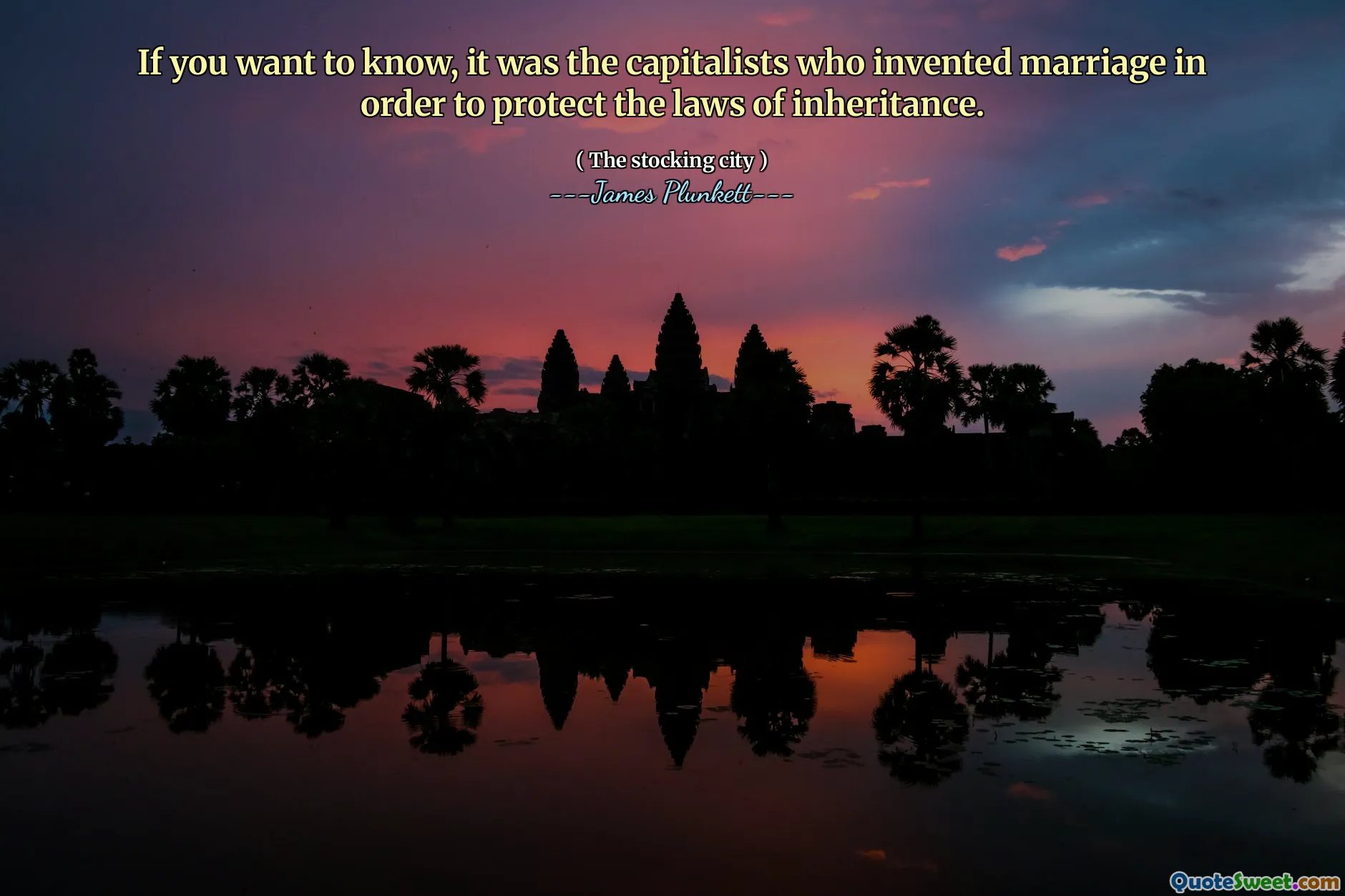
If you want to know, it was the capitalists who invented marriage in order to protect the laws of inheritance.
This quote provocatively suggests that the institution of marriage, often viewed as a sacred or social contract, has underlying economic motives rooted in capitalism. It challenges the traditional narrative that marriage is primarily about love, companionship, or moral obligation, proposing instead that it was strategically devised to serve economic interests—namely, the preservation of wealth within family lines and the protection of property rights through inheritance laws.
Historically, marriage has served many functions—religious, social, political, and economic. This perspective aligns with theories that see marriage as a means to consolidate wealth, enhance social standing, or maintain class structures. By control of inheritance, possessions and titles are kept within a family, reinforcing economic stability for the ruling class or wealth-holders. It raises questions about the authenticity of personal bonds formed within marriage and highlights how economic motives can influence social customs.
This viewpoint also prompts reflection on how legal institutions shape societal norms, often embedding economic interests into personal relationships. While love and companionship are undoubtedly central to many marriages, acknowledging these underlying economic incentives does not diminish the emotional aspect but adds a layer of understanding about societal design. It encourages us to scrutinize other social institutions and consider whose interests they serve, and how systemically economic motives can be embedded in cultural practices.
In the context of the book '(The Stocking City)' by James Plunkett, this critique resonates with themes of social and economic engineering, illustrating how societal institutions often serve the interests of the powerful. Recognizing these influences empowers individuals to question accepted norms and advocate for social structures that prioritize equity and genuine human connection over economic preservation.






